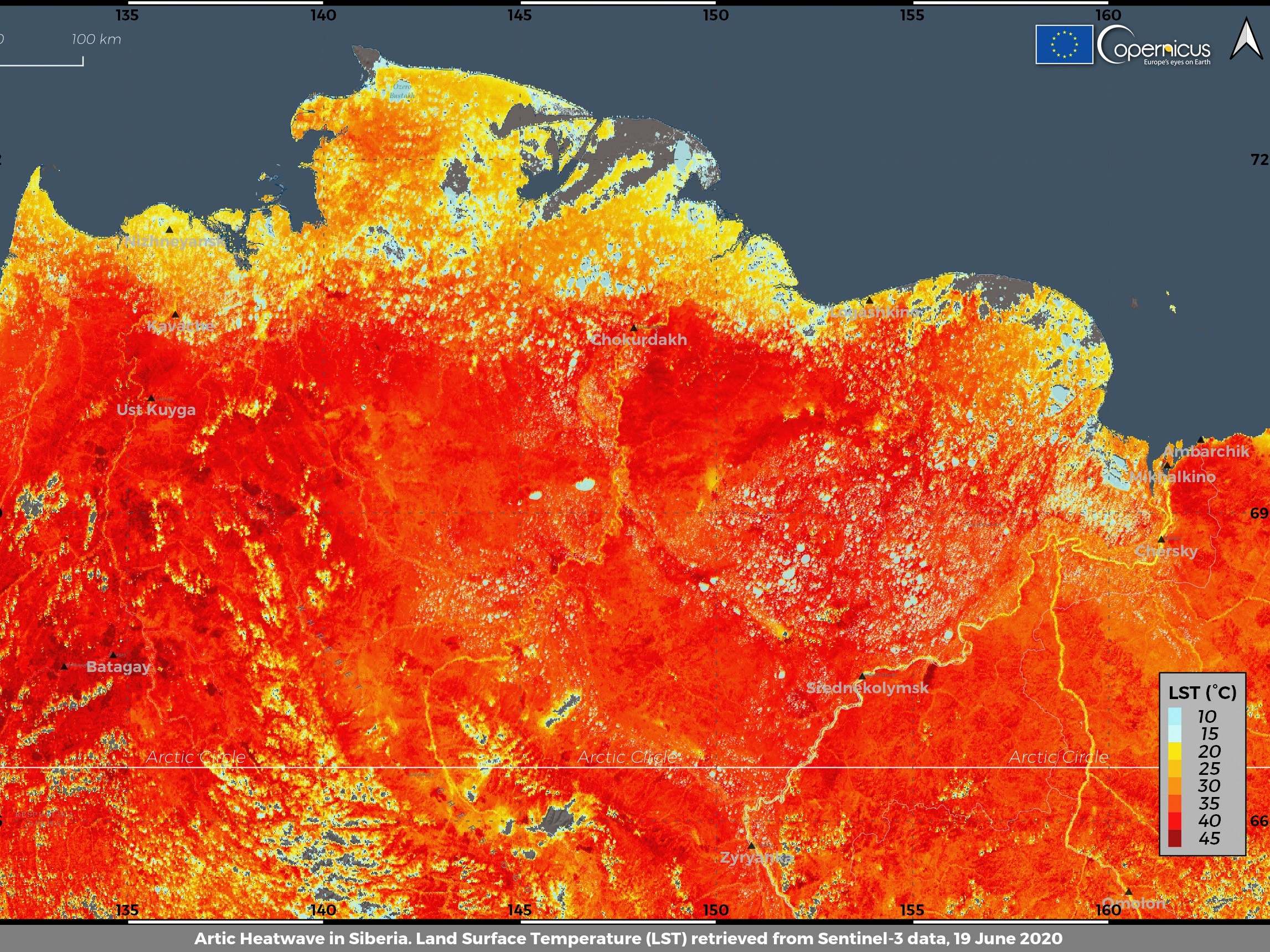Climate crisis: Record Arctic heatwave sees Siberia wildfires increase fivefold
‘The signs of climate change are already here. It’s not some distant future,’ say scientists

Your support helps us to tell the story
From reproductive rights to climate change to Big Tech, The Independent is on the ground when the story is developing. Whether it's investigating the financials of Elon Musk's pro-Trump PAC or producing our latest documentary, 'The A Word', which shines a light on the American women fighting for reproductive rights, we know how important it is to parse out the facts from the messaging.
At such a critical moment in US history, we need reporters on the ground. Your donation allows us to keep sending journalists to speak to both sides of the story.
The Independent is trusted by Americans across the entire political spectrum. And unlike many other quality news outlets, we choose not to lock Americans out of our reporting and analysis with paywalls. We believe quality journalism should be available to everyone, paid for by those who can afford it.
Your support makes all the difference.A prolonged heatwave in Russia’s Siberia has turned the region's forests into tinderboxes, with the number of wildfires multiplying nearly fivefold over the past week.
Figures from Avialesookhrana, Russia’s agency for aerial forest fire management, revealed that 1.15 million hectares (2.85 million acres) were burning in areas firefighters could not reach.
The worst-hit area is the Sakha Republic, where the town of Verkhoyansk is located. A record temperature of 38C was reported there on 20 June and, if confirmed, would be the hottest day ever recorded in the Arctic.
The World Meteorological Organisation said Tuesday it is working to verify the unprecedented temperature reading.
A satellite belonging to the Copernicus Climate Change Service detected on 25 June what was believed to be the northernmost fire in recent years, located within the Sakha Republic, said the EU Commission’s directorate-general for Defence Industry and Space (DG DEFIS).
Gavin Schmidt, director of NASA Goddard Institute for Space Studies (GISS), said: “This event seems very anomalous in the last hundred years or so.
“The background trends in temperature in this region are about three degrees Celsius since the 19th century, so the probabilities of breaking records there are increasing fast.”
Images of the region from the Copernicus Climate Change Service show Siberia awash in fiery orange and red amid soaring temperatures. According to the service, last month was the warmest May on record globally and most above-average temperatures were recorded over parts of Siberia, where they were up 10C above normal.
But temperatures have been exceptionally warm in the region since January. Amber Soja, a NASA research fellow who has conducted field research in the region, said: “In this part of Siberia, the signs of climate change are already here. It’s not some distant future.
“The heat and fires this year are just adding more evidence to the climate change signal that we have seen in these forests for years.”
Climate scientist Jonathan Overpeck told the Associated Press the Arctic is “figuratively and literally on fire”.
“It’s warming much faster than we thought it would in response to rising levels of carbon dioxide and other greenhouse gases in the atmosphere, and this warming is leading to a rapid meltdown and increase in wildfires,” he said in an email.
“The record warming in Siberia is a warning sign of major proportions.”
The Arctic is one of the fastest warming regions in the world and is heating up at twice the global average speed. In addition to the fires, this is resulting in the degradation of permafrost and coastal erosion, raising alarm and concern about the impact on structural stability in the region as well as wildlife there.
Additional reporting by Associated Press
Join our commenting forum
Join thought-provoking conversations, follow other Independent readers and see their replies
Comments